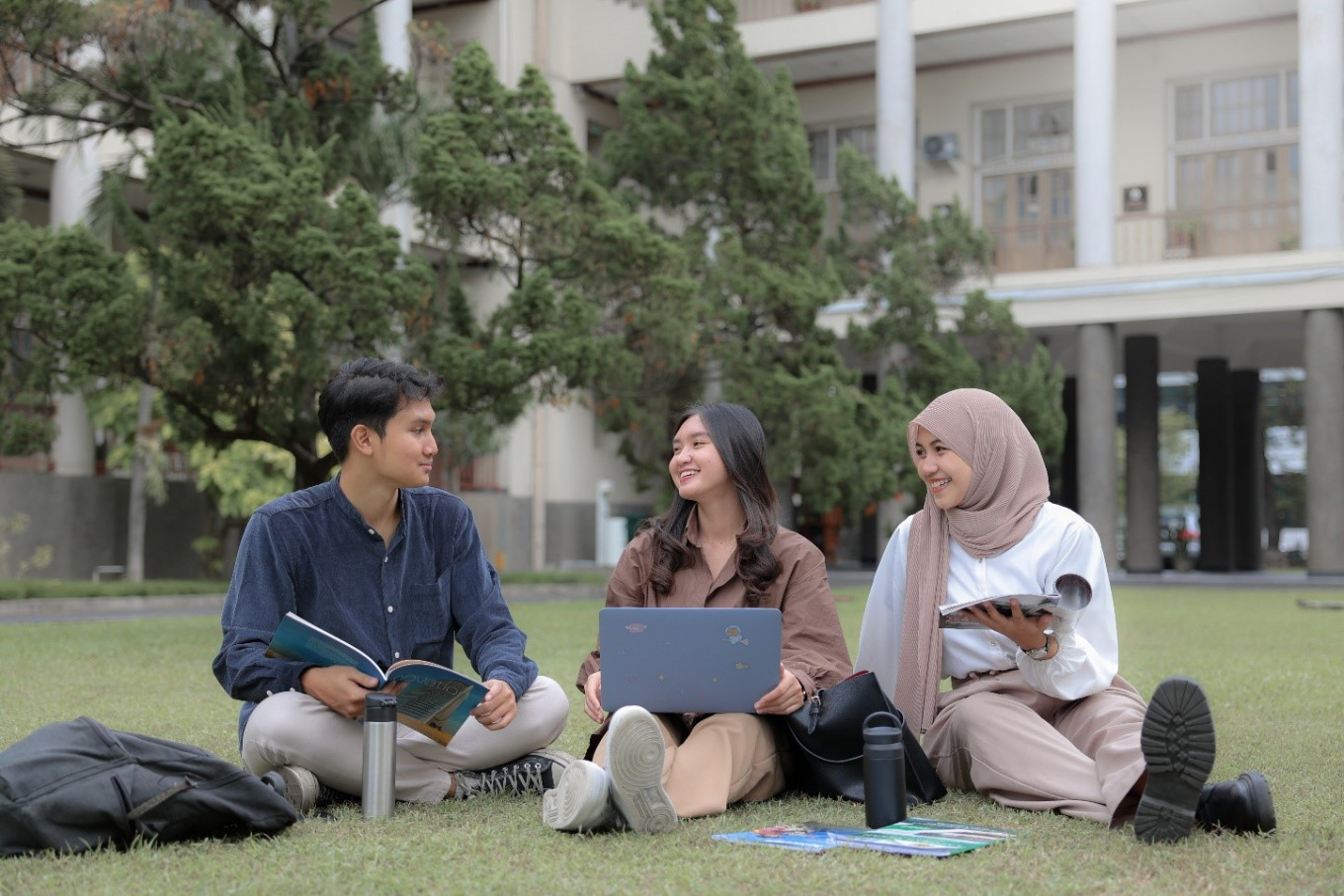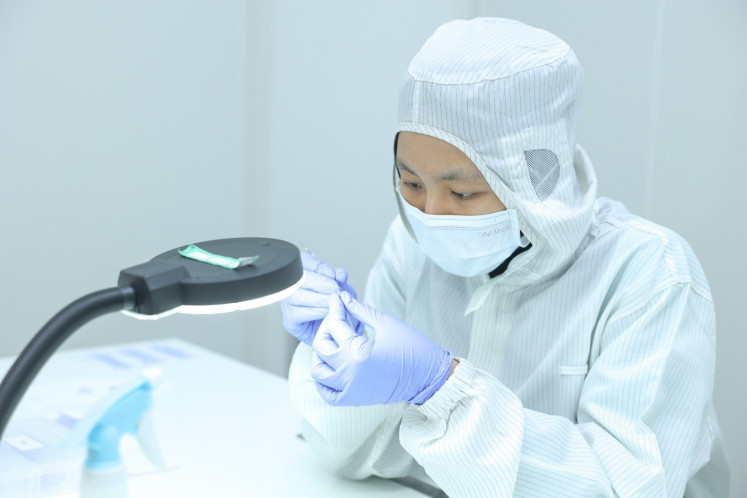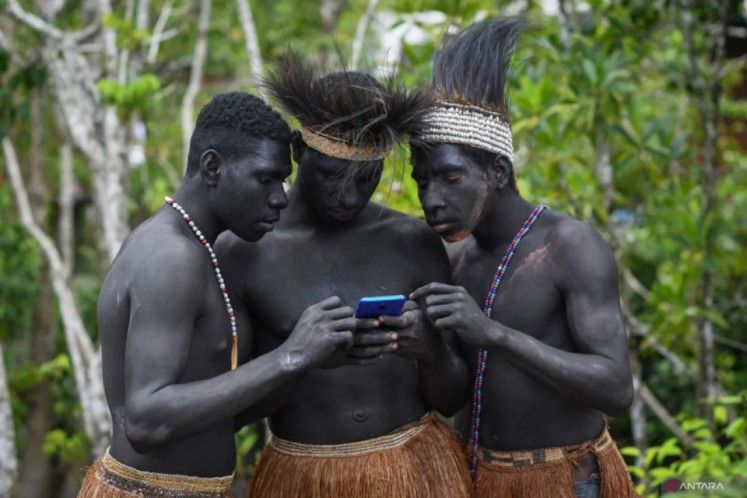Popular Reads
Top Results
Can't find what you're looking for?
View all search resultsPopular Reads
Top Results
Can't find what you're looking for?
View all search resultsUGM celebrates 75 years of spreading benefit
Change text size
Gift Premium Articles
to Anyone
I
n its 75th year, Universitas Gadjah Mada (UGM) remains committed to advancing the nation through science and technology development, instilling noble values in its academics to help nurture the nation’s superior and competitive future generations.
In her Rector's Report speech at the UGM Dies Natalis event on Thursday, UGM Rector Ova Emilia said the celebration of UGM's 75th Dies Natalis is an opportunity to reflect on the university's commitment to building the nation, cultivating a spirit of nationalism, strengthening national identity and forming a civilized and ethical society.
"UGM is committed to producing a generation ready to face global challenges and contribute positively to the nation and society," she said.
UGM, the number one campus in Indonesia according to the QS Sustainability Ranking 2025, continues to achieve progress through the sustainable, adaptive, and agile efforts of the university's leadership and stakeholders.
However, a dynamic global ecosystem has created challenges, including climate change and environmental issues, cultural changes, digital technology developments, geopolitical tensions, and socio-economic inequality, all of which impact human welfare, Ova continued.
"In the global framework, SDGs [Sustainable Development Goals] become mainstream policy as a sustainable future is a shared vision for realizing the welfare of an increasingly equitable and inclusive global community," she said.
Responding to the challenges, UGM continues to make improvements in the fields of education, research, and community service.
In education, UGM has developed a dignified and inclusive system within the “university without walls” paradigm, providing broad access to education for the community and vulnerable groups through affirmative education policies and scholarship programs.
"The development of UGM Online as an open online learning platform signifies one real step towards providing quality education to a wider audience," Ova said.
As a national university, UGM seeks and recruits economically disadvantaged prospective students with high academic potential through the Indonesia Smart College Card (KIP-K) program while aiming for a minimum of 20 percent of new student admissions in all study programs to come from the outermost and most disadvantaged areas (3T).
Throughout 2024, new students from underprivileged families and 3T regions have reached 21.69 percent, or approximately 2,316 students out of 10,678 accepted this year.
To boost national and international publications, UGM encourages incentive provision for lecturers and researchers while increasing the number of postgraduate students.
In accordance with the Renstra (strategic plan), postgraduate students are targeted at 40 percent in 2027. To date, they make up 30.87 percent of the total 61,061 students.
In research, UGM's intellectual property achievements in 2024 produced 880 titles, consisting of 92 patents, 751 copyrights, 26 industrial designs and 11 brands.
To support food security, UGM has developed innovations such as Fortified Rice, Gamagora 7, Happy Chicken Eggs, Malika Soybeans, Smart Traceability Farming Soybeans (Saekedelai), Gama Cattle, Vibrio Vaccine for fish, Biofertilizer and Gama Umami grass, among others.
UGM has also created the Desa Apps, Lentera DESA, iTrap, and "Sikendang" product to support the agricultural sector’s move towards food sovereignty and security, especially in dealing with climate change.
In the health sector, UGM has developed products with high-quality natural ingredients, including Cinnacare, Berwyn Dent, and Propasdent propolis toothpaste. Additionally, UGM produces domestic health devices, including independent foot care tools for diabetics, a digital microscope to detect real sugar and a colorectal early detection application.
"The research and use of these products and health devices are implemented across various faculties and schools together with UGM's existing health service facilities," Ova said.
In the energy sector, UGM has always supported government policies, especially those promoting energy security and the transition to clean and renewable energy. To that end, UGM researchers are currently researching recycled lithium batteries and smart battery management.
UGM is also promoting the Net Zero Emissions Campus program, which relates to energy efficiency, use of renewable energy and emissions reductions in all aspects of campus operations, with the aim to make UGM a model sustainable campus in Indonesia.
For community service, the university has deployed 315 KKN-PPM units to 35 provinces, 29 regencies, and 247 subdistricts, with 8,513 students from 18 faculties and one school joining throughout 2024.
Additionally, UGM translates research and education results into community service initiatives based on fostered villages and the implementation of appropriate technologies.
Source: UGM












